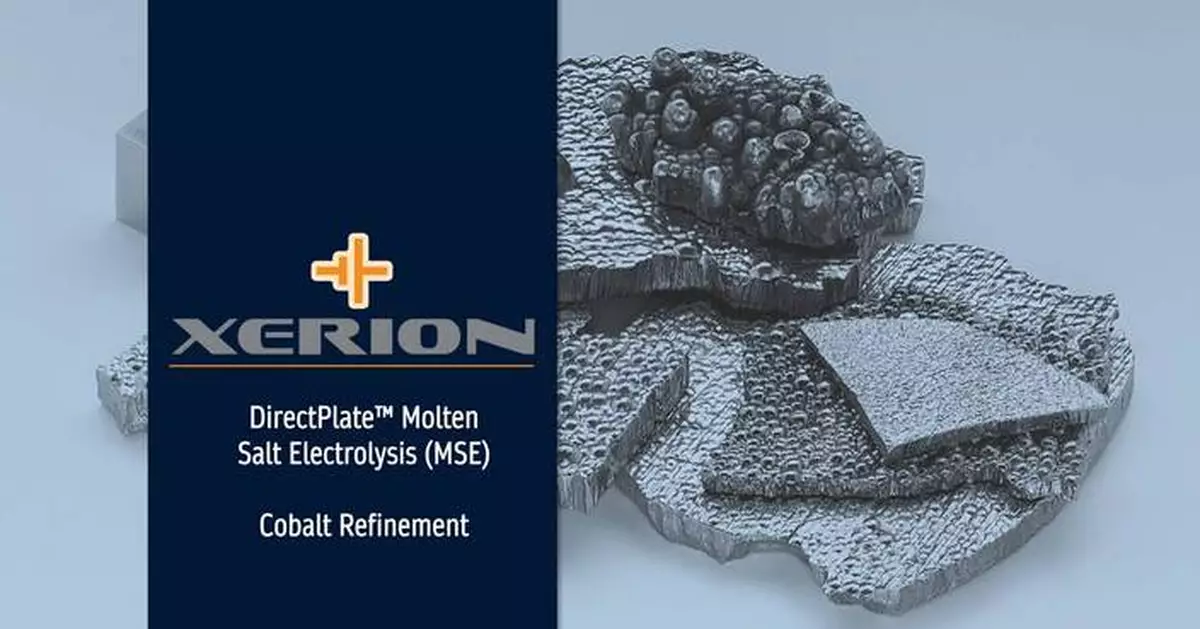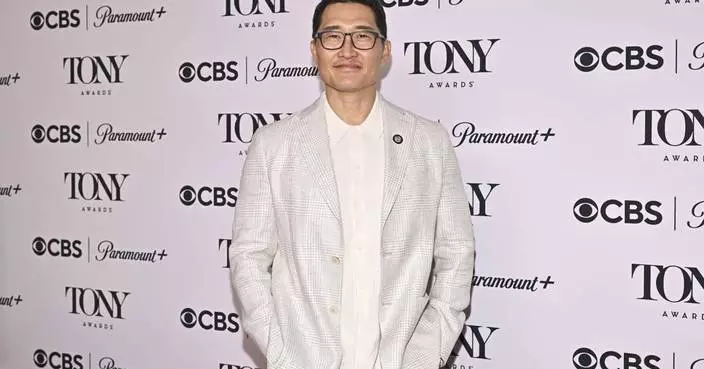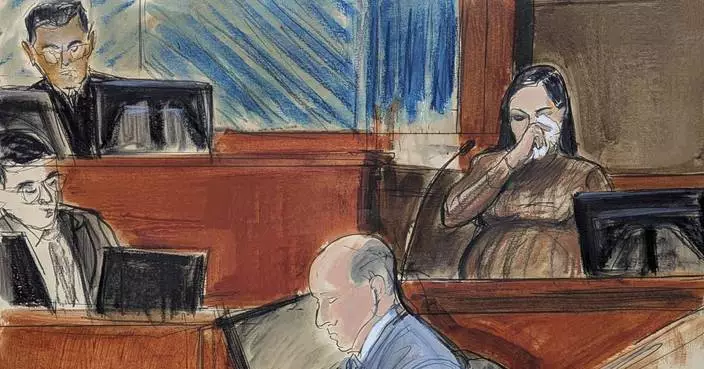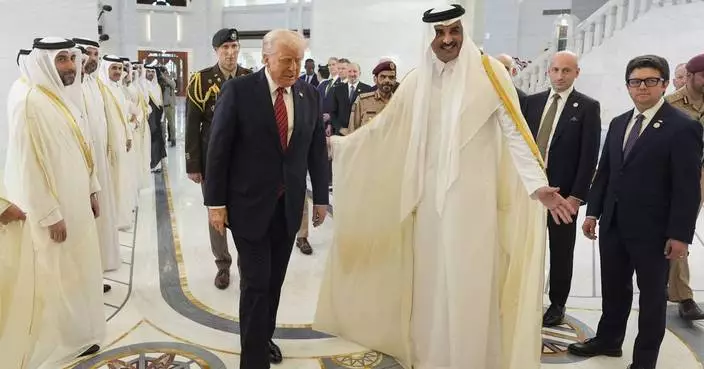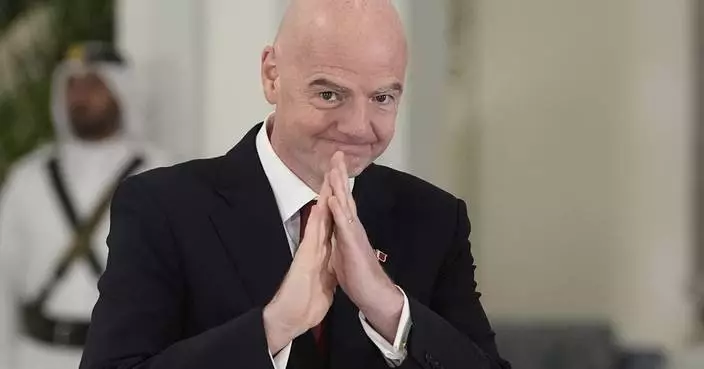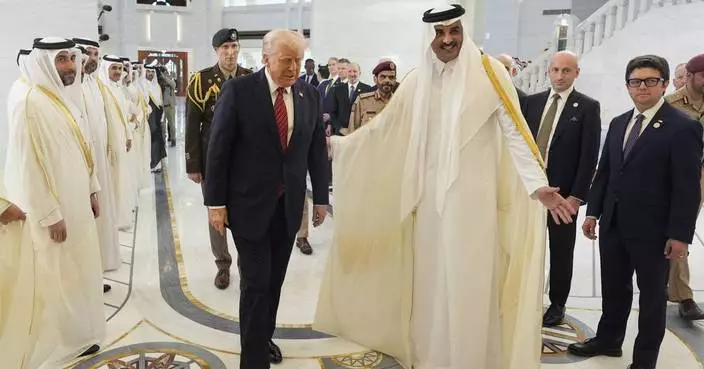DAYTON, Ohio--(BUSINESS WIRE)--Apr 23, 2025--
Xerion Advanced Battery Corp., a disruptive developer and manufacturer of next-generation battery components and critical minerals, today announced a revolutionary breakthrough in cobalt refinement, as well as the launch of a pilot-scale production line at its Dayton, Ohio manufacturing facility. Xerion’s revolutionary cobalt refinement technology represents a transformational innovation in metal refinement and is poised to fundamentally reshape the United States' approach to securing essential battery materials and critical minerals.
This press release features multimedia. View the full release here: https://www.businesswire.com/news/home/20250423809513/en/
Xerion’s proprietary DirectPlate™ Molten Salt Electrolysis (MSE) technology, originally developed for the refining and synthesis of battery components, introduces a single-step, continuous process that dramatically reduces the complexity and cost of cobalt refinement. This process offers significant advantages over legacy refinement methods relative to unit economics, supply chain security, and environmental impact. The company has begun pilot-scale production at its five-tonne capacity Dayton, Ohio facility, where it is working to optimize processes ahead of planned future expansions to support commercial-scale production.
Unlike existing methods that require multiple plants and extensive processing, Xerion’s innovative DirectPlate Molten Salt Electrolysis (MSE) approach can transform crude cobalt hydroxide directly into high-purity cobalt metal with unprecedented efficiency. In a lab-unit testing environment, Xerion has consistently achieved greater than 99% pure cobalt metal output with greater than 98% yields, producing over 100 kilos, representing an unprecedented advancement over legacy refinement methods.
"Our technology is not just an incremental improvement – it's a fundamental reimagining of how we produce critical minerals," said Dr. John Busbee, CEO and Co-Founder of Xerion. "At Xerion we are passionate about the advancement of a domestic battery materials supply chain, and we are proud to be addressing a critical national security challenge by presenting a solution that can significantly reduce our dependence on foreign mineral supplies.”
Critical minerals are essential to the US economy and national security, yet the US relies on convoluted supply chains for many of the key minerals it needs for defense and commercial applications. Today, the US possesses zero domestic cobalt refinement capacity, while China is responsible for 72% of global refinement capacity, according to the International Energy Agency (IEA). With global cobalt demand expected to grow from 240,000 tonnes in 2024 to between 410,000 and 520,000 tonnes by 2050, Xerion is positioning itself at the forefront of a critical industry transformation. This breakthrough technology comes at a crucial moment, as the United States seeks to reduce reliance on foreign mineral suppliers.
In addition to economic and supply chain advantages, Xerion’s DirectPlate MSE technique for cobalt metal refinement offers significant environmental benefits as compared to legacy refinement methods. This process involves inherently safe low-temperature processing, drastically reducing electricity requirements as compared to conventional refinement methods while minimizing permitting risk for commercial infrastructure development. Xerion’s DirectPlate MSE technique also features a closed-loop rinse system, delivering significant water use advantages, in addition to requiring zero organic solvents, resulting in a highly attractive emissions profile.
Xerion has spent more than a decade developing its novel lithium-ion battery technology, using a proprietary production process and a novel new battery architecture to significantly reduce the cost of high-performance lithium-ion batteries. Xerion’s revolutionary manufacturing platform is founded upon two patented core technologies – DirectPlate™, an innovative refining and deposition technique, and StructurePore™, a novel battery electrode architecture.
These core technologies combined deliver a dramatically lower-cost lithium-ion battery with higher energy density, higher power, faster charge, longer life, improved safety and 40% lower carbon emissions than conventional battery manufacturing.
About Xerion Advanced Battery Corp.
Founded in 2010, Xerion Advanced Battery Corp. is a developer and manufacturer of next-generation battery components and critical minerals with a vision to revolutionize the energy industry through disruptive innovations. Xerion's proprietary technologies, including its DirectPlate™ critical metals refining and deposition technique and StructurePore™ battery electrode architecture, enable step-change performance improvements in lithium-ion batteries while strengthening domestic critical materials supply chains. Through these core technologies, Xerion delivers solutions that address national security challenges while providing fundamental improvements across the battery supply chain, from mineral refinement through to end-user applications, with enhanced performance and reduced environmental impact.
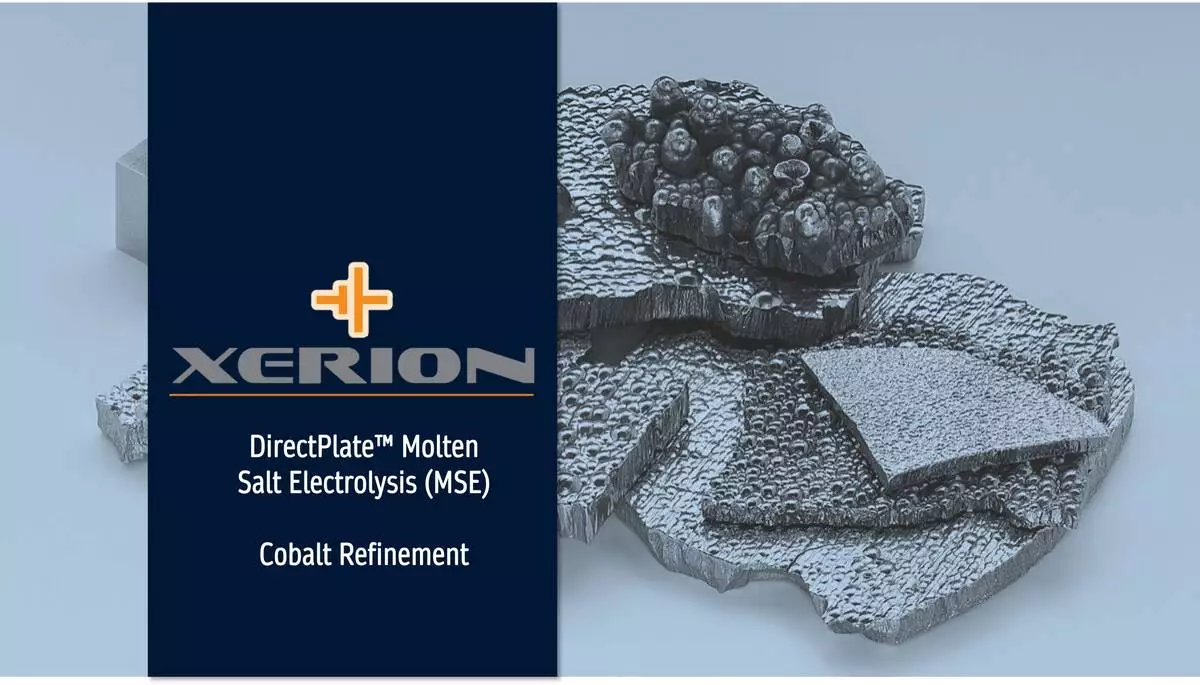

Xerion Achieves Breakthrough Single-Step, High-Purity Cobalt Metal Refinement, Launches Ohio Pilot Production Line
ANTALYA, Turkey (AP) — NATO foreign ministers on Thursday debated an American demand to massively ramp up defense investment as the United States focuses on security challenges outside of Europe.
At talks in Antalya, Turkey, NATO Secretary-General Mark Rutte said more investment and military equipment are needed to deal with threats posed by Russia and terrorism but also by China, which has become the focus of U.S. concern.
“When it comes to the core defense spending, we need to do much, much more,” Rutte told reporters. He underlined that once Russia's war in Ukraine is over, Moscow could reconstitute its armed forces within three years to five years.
U.S. Secretary of State Marco Rubio said “the alliance is only as strong as its weakest link.” He insisted that the U.S. demand for allies to invest 5% of their gross domestic product on defense over the next seven years is about “spending money on the capabilities that are needed for the threats of the 21st century.”
The debate on defense spending is heating up before the summit of President Donald Trump and his NATO counterparts in the Netherlands on June 24-25. That gathering will set the course for future European security, including that of Ukraine.
In Istanbul, Russian and Ukrainian delegations will hold their first direct peace talks in three years, though the timing is unclear. Russian President Vladimir Putin spurned Ukrainian President Volodymyr Zelenskyy’s offer to meet face to face in Turkey this week. Trump had pressed for Putin and Zelenskyy to meet but brushed off Putin's decision to skip.
Meantime, Rubio, who is due in Istanbul on Friday, met with Syrian Foreign Minister Assad al-Shaibani on the sidelines of NATO meeting as Damascus seeks to reintegrate into the Mideast and beyond.
The NATO sessions focused on a new spending plan in the works. As Russia’s war on Ukraine entered its second year, NATO leaders agreed in 2023 to spend at least 2% of gross domestic product on national defense budgets. So far, 22 of the 32 member countries have done so.
The new plan is for all allies to aim for 3.5% of GDP on their defense budgets by 2032, plus an extra 1.5% on potentially defense-related things like infrastructure — roads, bridges, airports and seaports.
While the two figures add up to 5%, factoring in infrastructure and cybersecurity would change the basis on which NATO traditionally calculates defense spending. The seven-year time frame is also short by the alliance’s usual standards.
Rutte refused to confirm the numbers but acknowledged the importance of including infrastructure.
It’s difficult to see how many members would reach a new 3.5% goal. Belgium, Canada, Croatia, Italy, Luxembourg, Montenegro, Portugal, Slovenia and Spain are not even spending 2% yet, though Spain expects to reach that goal this year, a year past the deadline.
The U.S. demand would require investment at an unprecedented scale. But Trump has cast doubt over whether the U.S. would defend allies that spend too little — an incentive to do more, even as European allies realize that they must match the threat posed by Russia.
Europe-wide, industry leaders and experts have pointed out challenges the continent must overcome to be a truly self-sufficient military power, chiefly its decades-long reliance on the U.S. as well as its fragmented defense industry.
“There is a lot at stake for us,” Lithuanian Foreign Minister Kęstutis Budrys said. He urged NATO partners to meet the investment goals faster than the 2032 target "because we see the tempo and the speed, how Russia generates its forces now as we speak.”
British Foreign Secretary David Lammy said his country should reach 2.5% by 2027, and then 3% by the next U.K. elections planned for 2029.
“It’s hugely important that we recommit to Europe’s defense and that we step up alongside our U.S. partners in this challenging geopolitical moment where there are so many precious across the world, and particularly in the Indo-Pacific,” he said.
As an organization, NATO plays no direct security role in Asia, and it's unclear what demands the Trump administration might make of the allies as it turns its attention to China. The last NATO security operation outside the Euro-Atlantic area, its 18-year stay in Afghanistan, ended in chaos.
Asked whether the next summit communique will underline that Russia still poses the greatest threat to NATO allies, Rutte said, "We will see what is the best way to play that.”
Questions also hang over the way the leaders will frame NATO's commitment to Ukraine. The war has dominated recent summits, with envoys struggling to find language that would further anchor the country to the alliance without actually allowing it to join.
But this year, Washington has taken Ukraine's membership off the table. Trump has shown impatience with Zelenskyy and remains unclear whether the Ukrainian leader will be invited to the June meeting in The Hague.
Cook reported from Brussels, and Fraser from Ankara, Turkey.

NATO foreign ministers gather during a NATO's informal meeting of foreign ministers in Antalya, southern Turkey, Thursday, May 15, 2025. (AP Photo/Khalil Hamra)
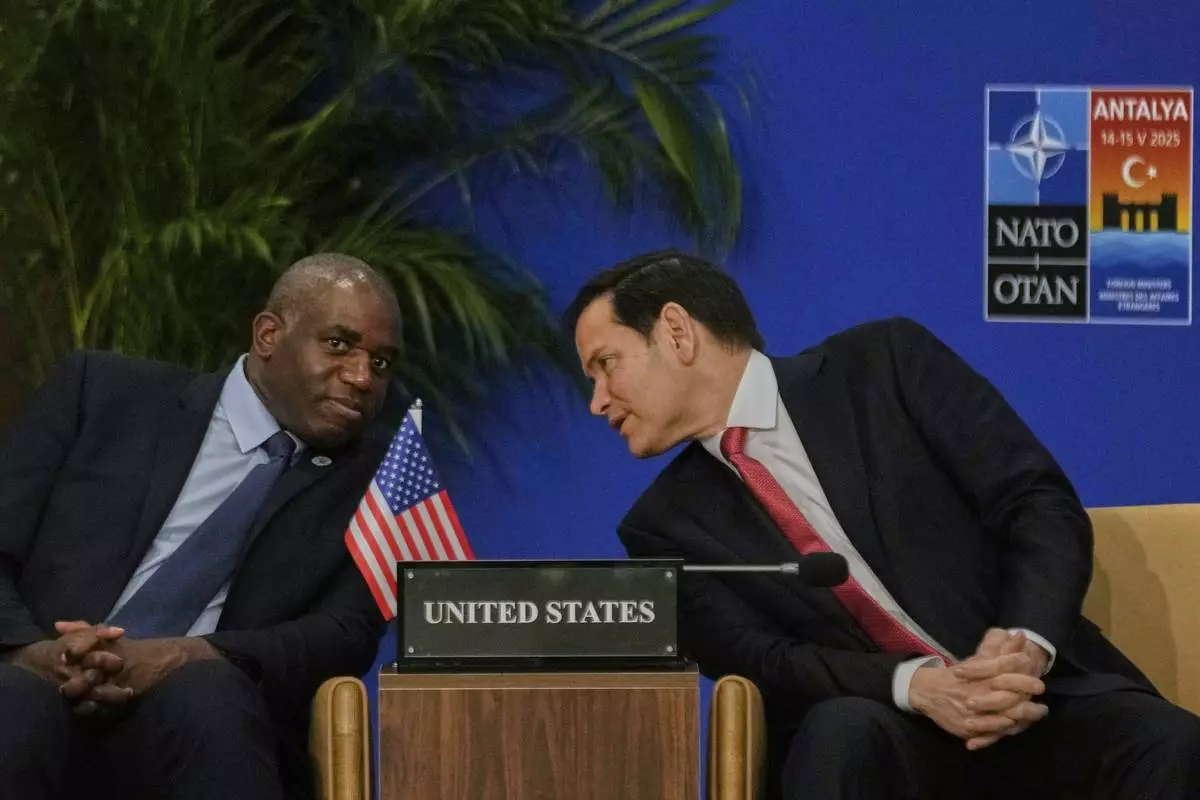
United States Secretary of State Marco Rubio, right, talks to British Foreign Secretary David Lammy during an informal meeting of NATO's foreign ministers in Antalya, southern Turkey, Thursday, May 15, 2025. (AP Photo/Khalil Hamra)

NATO Secretary General Mark Rutte attends a news conference at a NATO's informal meeting of foreign ministers in Antalya, southern Turkey, Thursday, May 15, 2025. (AP Photo/Khalil Hamra)
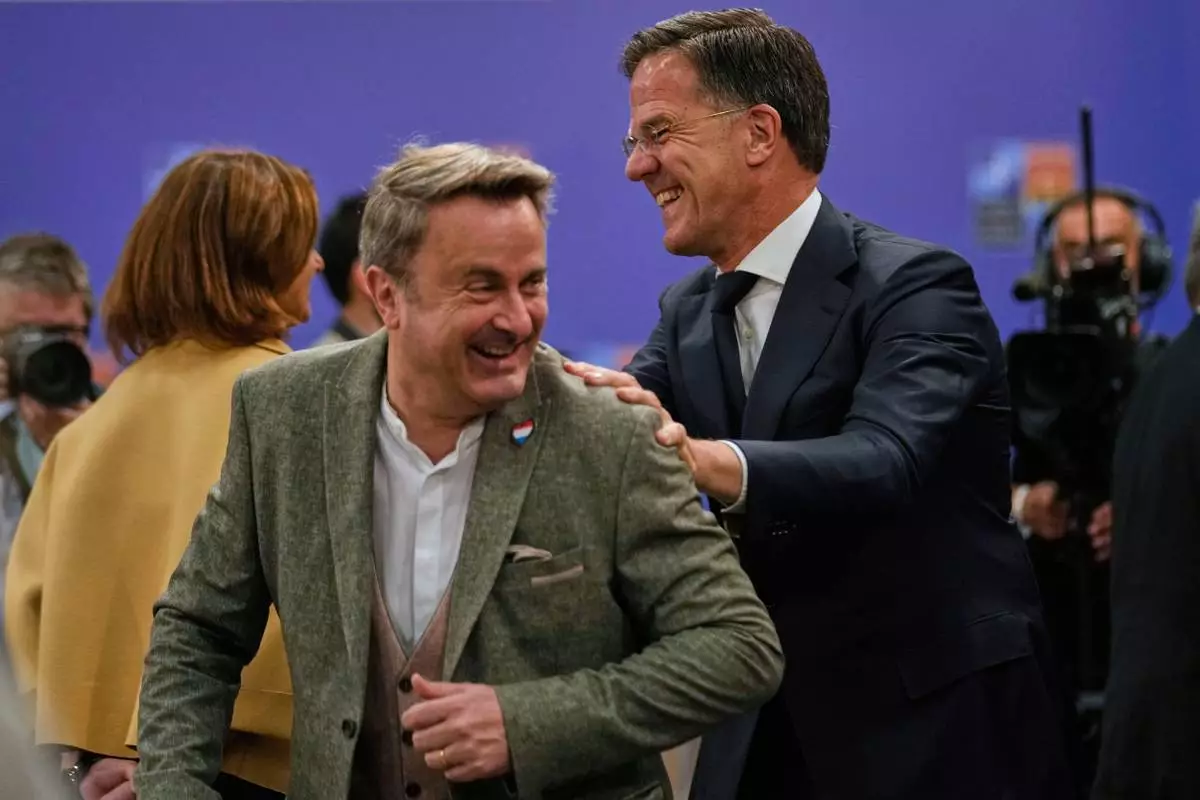
NATO Secretary-General Mark Rutte, right, talks to Luxembourg's Foreign Minister Xavier Bettel as they arrive for a group photo during a NATO's informal meeting of foreign ministers in Antalya, southern Turkey, Thursday, May 15, 2025. (AP Photo/Khalil Hamra)
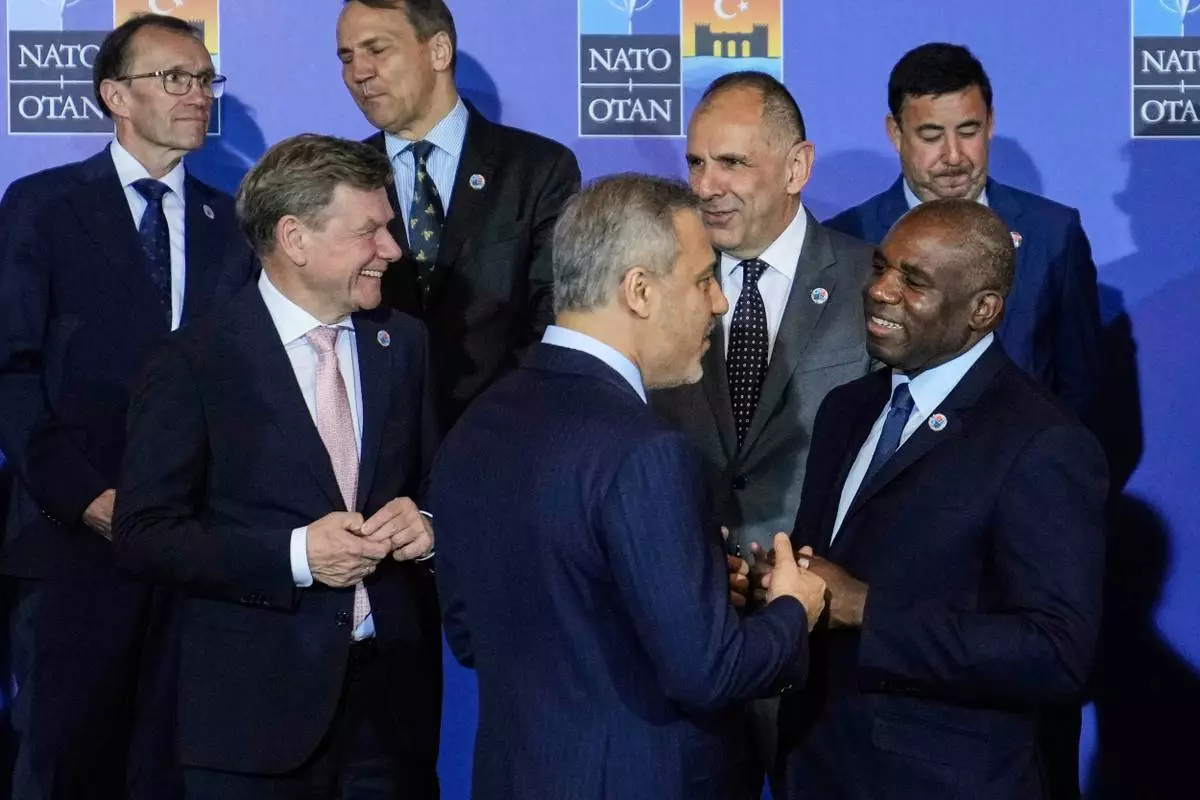
Turkey's Foreign Minister Hakan Fidan, center, talks to British Foreign Secretary David Lammy, right, next to Germany's Foreign Minister Johann Wadephul, left, as they wait for a group photo during a NATO's informal meeting of foreign ministers in Antalya, southern Turkey, Thursday, May 15, 2025. (AP Photo/Khalil Hamra)
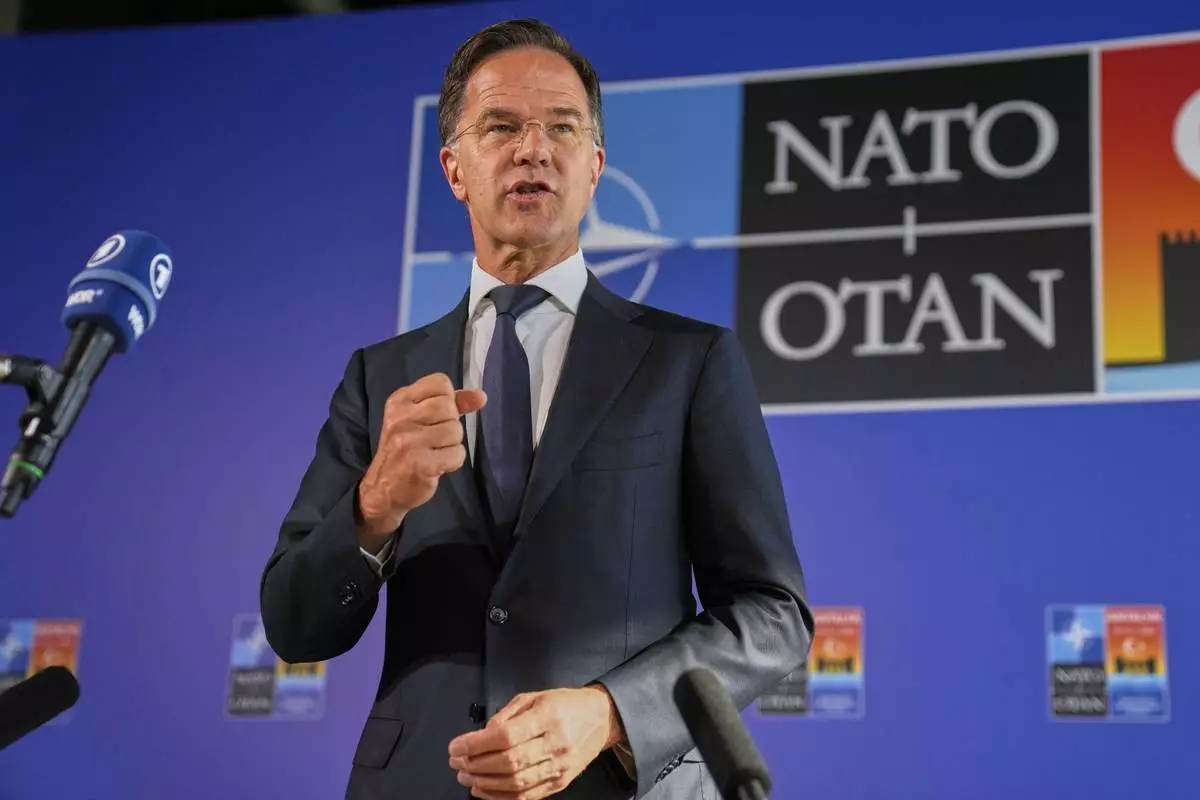
NATO Secretary General Mark Rutte talks to journalists as he arrives for a NATO's informal meeting of foreign ministers in Antalya, southern Turkey, Thursday, May 15, 2025. (AP Photo/Khalil Hamra)
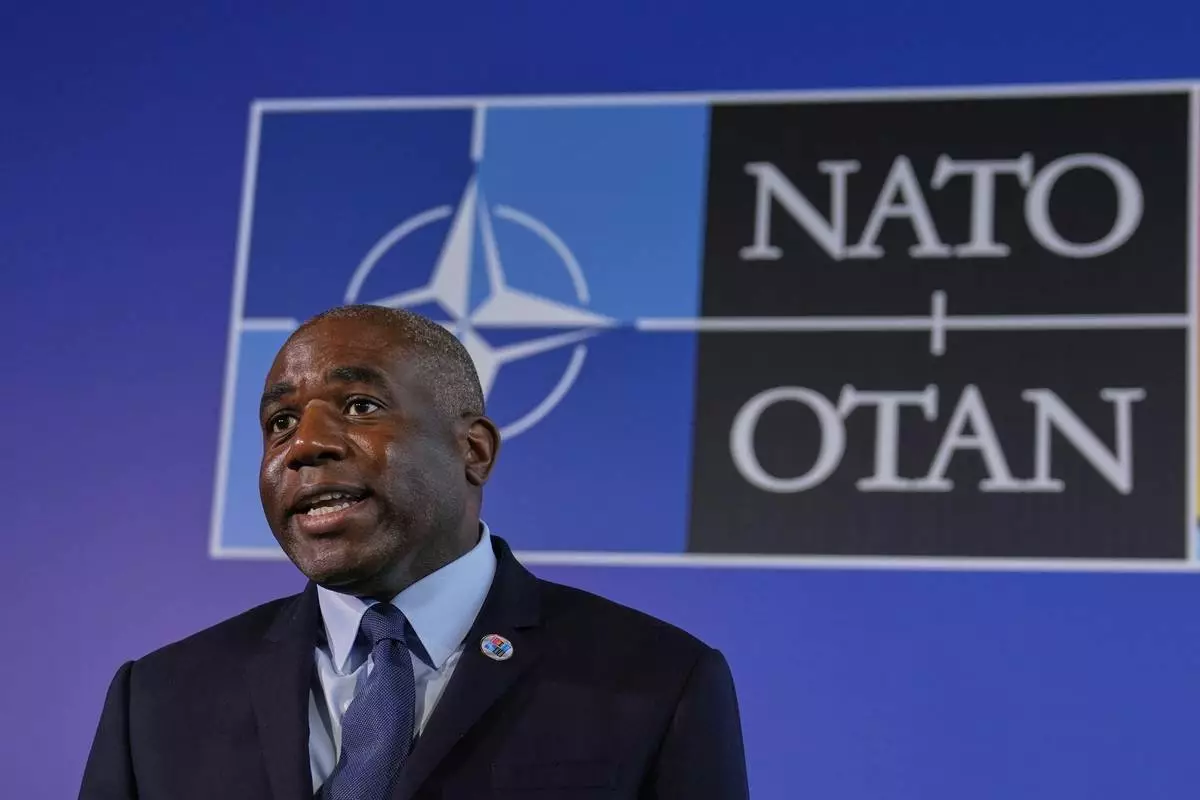
British Foreign Secretary David Lammy talks to journalists as he arrives for a NATO's informal meeting of foreign ministers in Antalya, southern Turkey, Thursday, May 15, 2025. (AP Photo/Khalil Hamra)
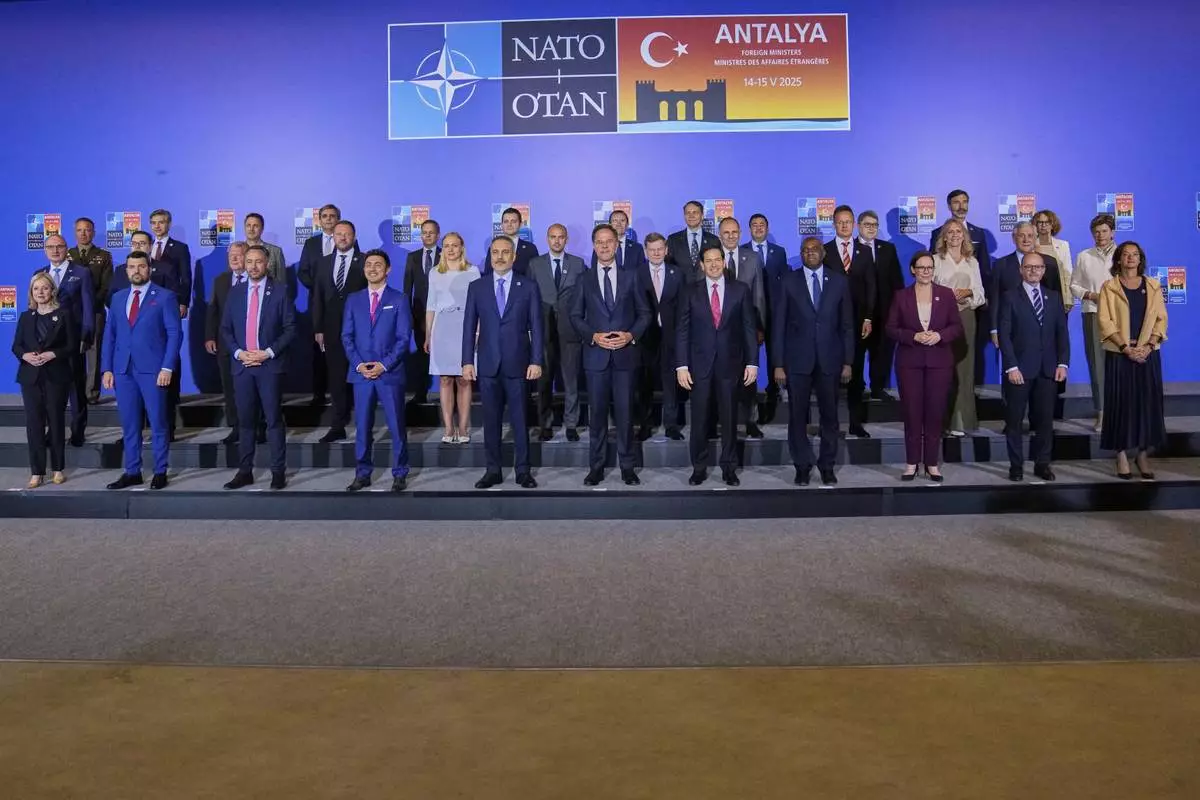
NATO foreign ministers pose for a group photo during their informal meeting in Antalya, southern Turkey, Thursday, May 15, 2025. (AP Photo/Khalil Hamra)
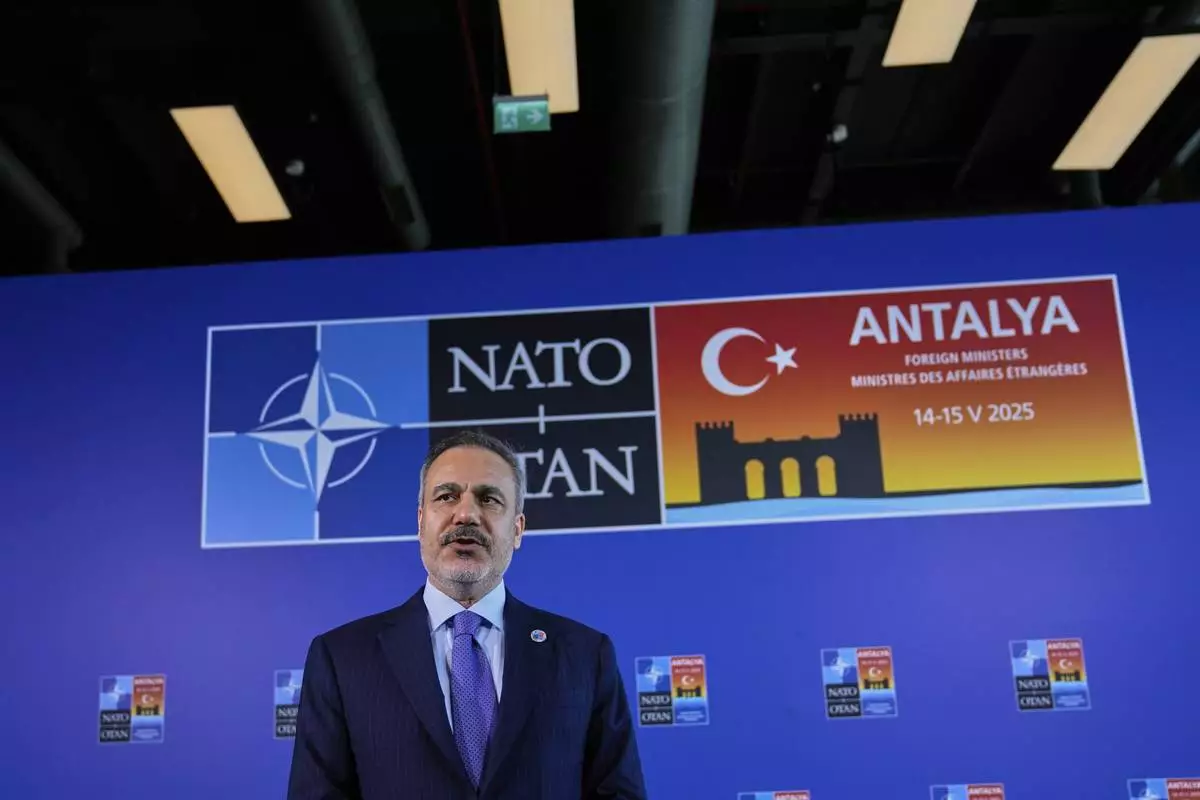
Turkey's Foreign Minister Hakan Fidan talks to journalists as he arrives for a NATO's informal meeting of foreign ministers in Antalya, southern Turkey, Thursday, May 15, 2025. (AP Photo/Khalil Hamra)
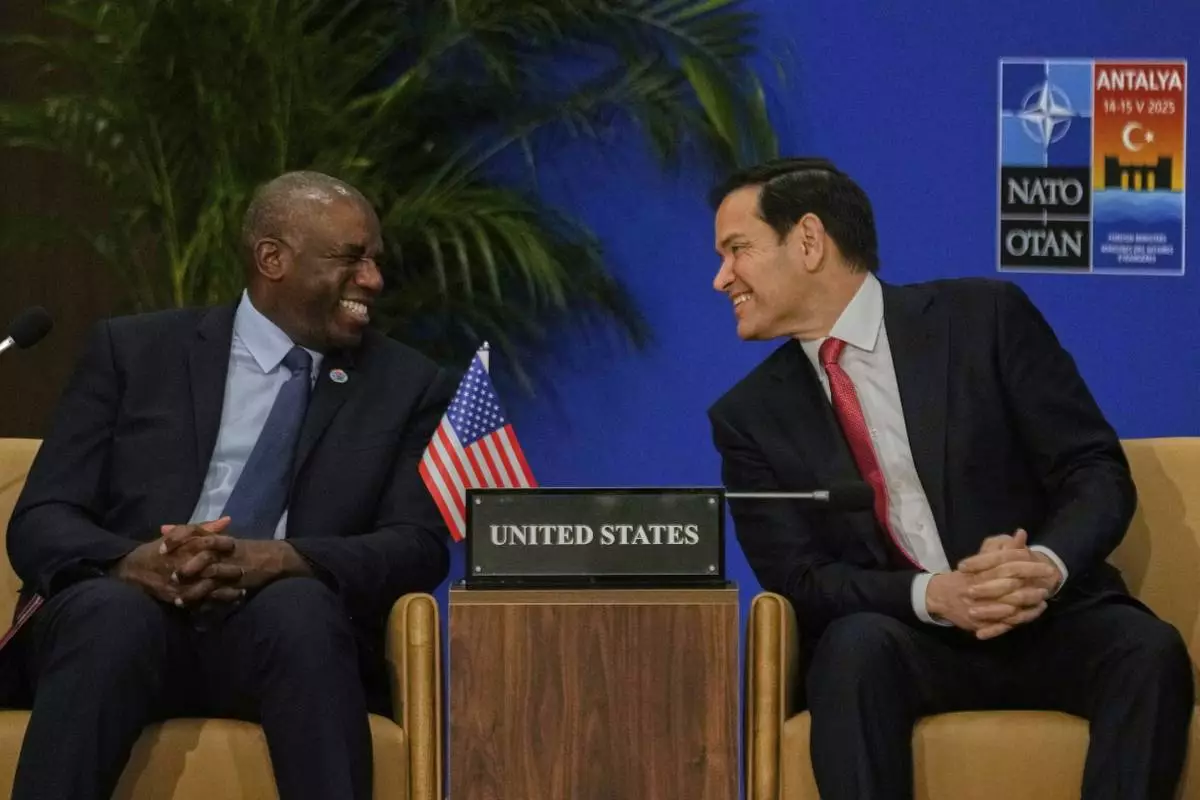
United States Secretary of State Marco Rubio, right, talks to British Foreign Secretary David Lammy during an informal meeting of NATO's foreign ministers in Antalya, southern Turkey, Thursday, May 15, 2025. (AP Photo/Khalil Hamra)
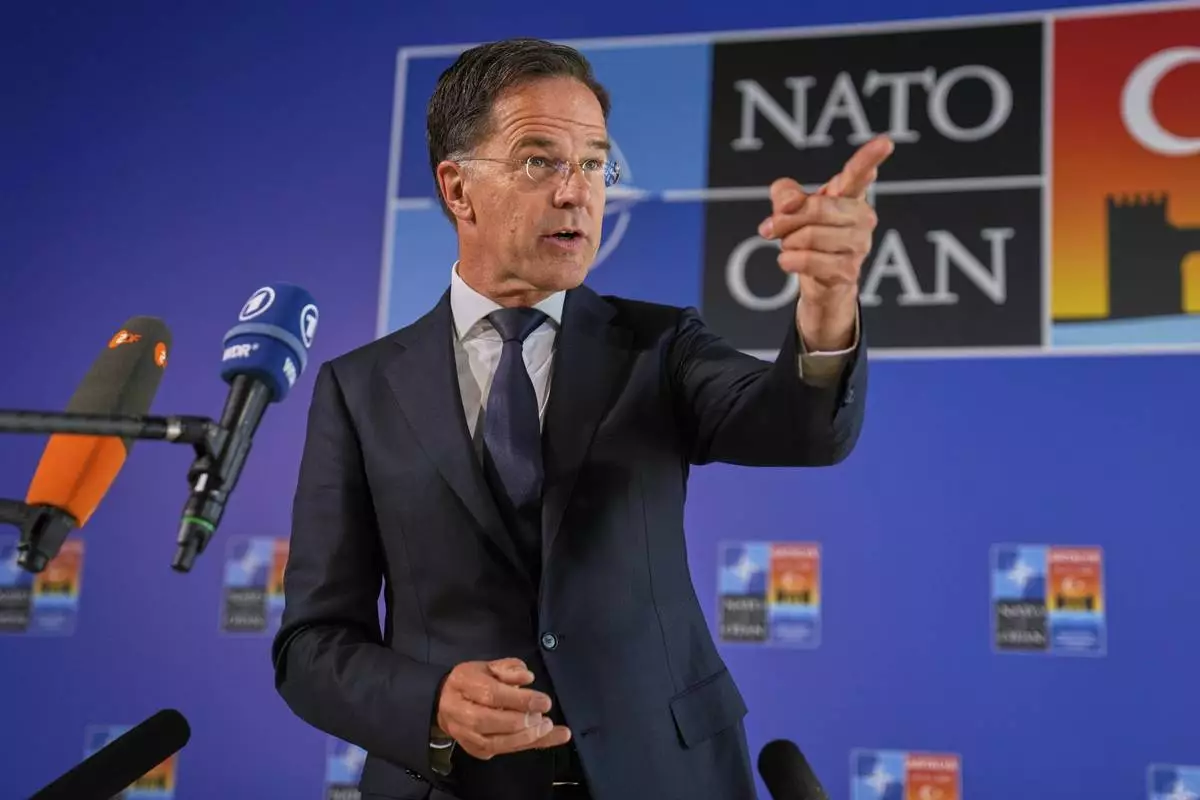
NATO Secretary General Mark Rutte talks to journalists as he arrives for NATO's informal meeting of foreign ministers in Antalya, southern Turkey, Thursday, May 15, 2025. (AP Photo/Khalil Hamra)
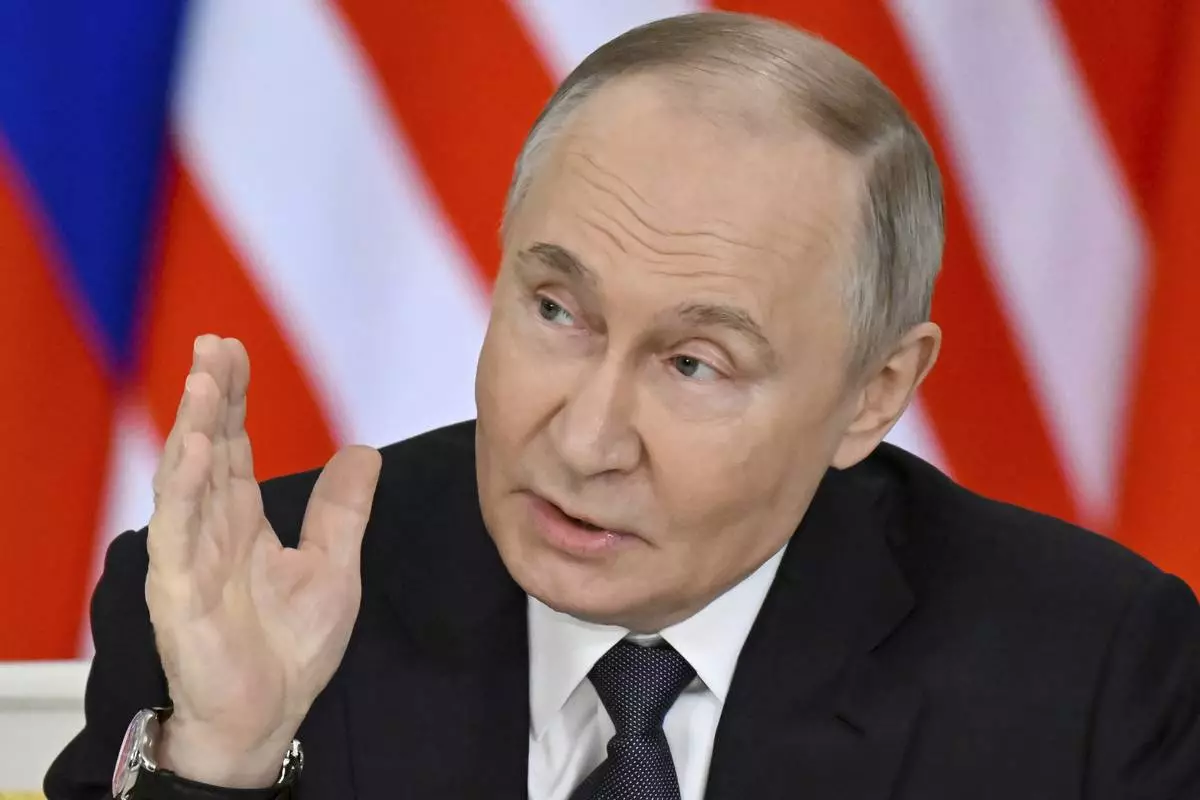
Russian President Vladimir Putin speaks during a joint press statement with Malaysian Prime Minister Anwar Ibrahim at the Kremlin in Moscow, Russia, Wednesday, May 14, 2025. (Alexander Nemenov/Pool Photo via AP)
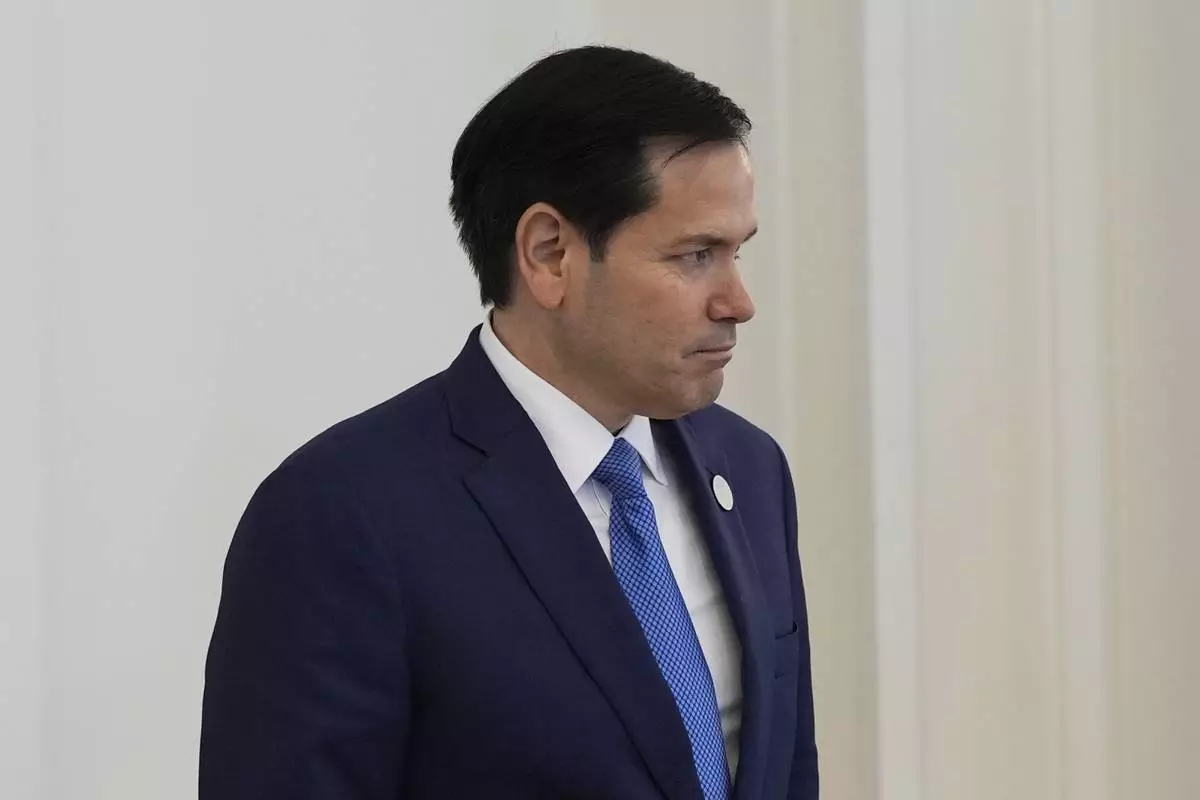
Secretary of State Marco Rubio departs a lunch between President Donald Trump and Qatar's Emir Sheikh Tamim bin Hamad Al Thani at the Amiri Diwan in Doha, Qatar, Wednesday, May 14, 2025. (AP Photo/Alex Brandon)




